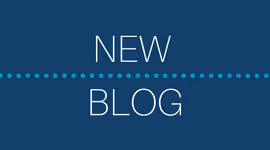Field data collection - challenges and successes...

Following evidence gathering of the potential risk of sexual and gender-based violence (SGBV) for refugees with a communication disability (CD) and the difficulties they face with disclosure and in accessing support, it was time to find out the real situation on the ground.
We wanted to find out what refugees with CD and their families experience in terms of prevention and support services in Rwanda. To do this, we planned a series of semi-structured interviews and focus groups to take place in Gihembe refugee camp and in an urban setting in Kigali.
Interview topic guides were designed for use with:
1. UNHCR and partner SGBV frontline staff in both settings
2. Community mobilisers in both settings
3. Carers of people with CD in both settings
We gained ethical approval for the project from Manchester Metropolitan University and, due to the sensitive nature of the discussions, decided not to interview people with CD or survivors of SGBV themselves at this stage.
We therefore agreed to interview refugee-carers of people with CD about living with a CD and not about experience of SGBV directly. The information about living with a CD and the challenges this poses would then be combined with the information about SGBV prevention and support obtained from camp staff and community mobilisers.
Unfortunately, Julie and Helen (speech and language therapists /researchers) were unable to obtain clearance to enter the camp and this challenge was overcome by briefing UNHCR staff to conduct the interviews in Gihembe camp with the community mobilisers and carers.
The data collectors debriefed Julie and I upon their return from the camp and the data was transcribed. Julie and I still travelled to Gicumbi, where the camp is located, to conduct the interviews with camp staff, who came to the local UNHCR office for the interview.
In Kigali, Julie, Sidra and Helen met with staff and mobilisers working, and refugee-carers living in the urban setting. The same interview guides were used with each group as with the camp staff and carers so that data could be compared across groups and environments.
One of the challenges to gathering data was working across up to four languages at once, with groups of up to ten people (in the case of the community mobiliser discussion groups) - a challenging task for the transcriber (Helen) to keep up with! Although we had prepared participant information sheets and consent forms in both English and Kinyarwanda, we also needed one in KiSwahili for the urban carers from Democratic Republic of Congo. Instead, verbal translation for the information sheet and consent was provided – luckily Julie’s KiSwahili skills learned back in 1988 came in useful!
Despite some small setbacks and unanticipated challenges, we managed to deal with these swiftly and flexibly. The result was some excellent discussion with the different groups about their experiences and understanding of communication disability their experience of working with people with CD and the difficulties faced by both the refugees with CD and the staff charged with their protection.
33 participants were interviewed during the data collection phase of the project. This included:
- Gihembe camp staff community mobilisers refugee carers
- Urban (Kigali): urban staff urban mobilisers refugee-carers
The main challenges that participants considered were likely for refugees with CD included:
- access to sexual and reproductive health education and SGBV prevention programmes
- disclosure
- reporting to the police
- accessing medical support
- accessing emergency protection pursuing legal redress and accessing emergency and ongoing psychosocial support.
This reflected the challenges identified in the literature review and highlights the widespread exclusion of people with CD from SGBV prevention and protection services in Rwanda. Staff were keen to express the need for awareness raising in communities and staff training for everyone across the SGBV care pathway to enable them to better support people with CD.
Armed with this valuable information, we began to prepare for our stakeholder workshop in Kigali, the aims of which was to gather information about SGBV services and needs for refugees in Rwanda and gain support from leading humanitarian SGBV implementing partners to take this work forward.
Helen Barrett: @communiglobal
Julie Marshall: @jemarshall13
Sidra Anwar: @RefugeesRwanda
Lise Capet: @IHCDDesign
Stay updated
Sign up for our newsletter to receive regular updates on resources, news, and insights like this. Don’t miss out on important information that can help you stay informed and engaged.
Related articles


.png)
Explore Elrha
Learn more about our mission, the organisations we support, and the resources we provide to drive research and innovation in humanitarian response.